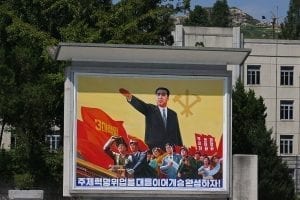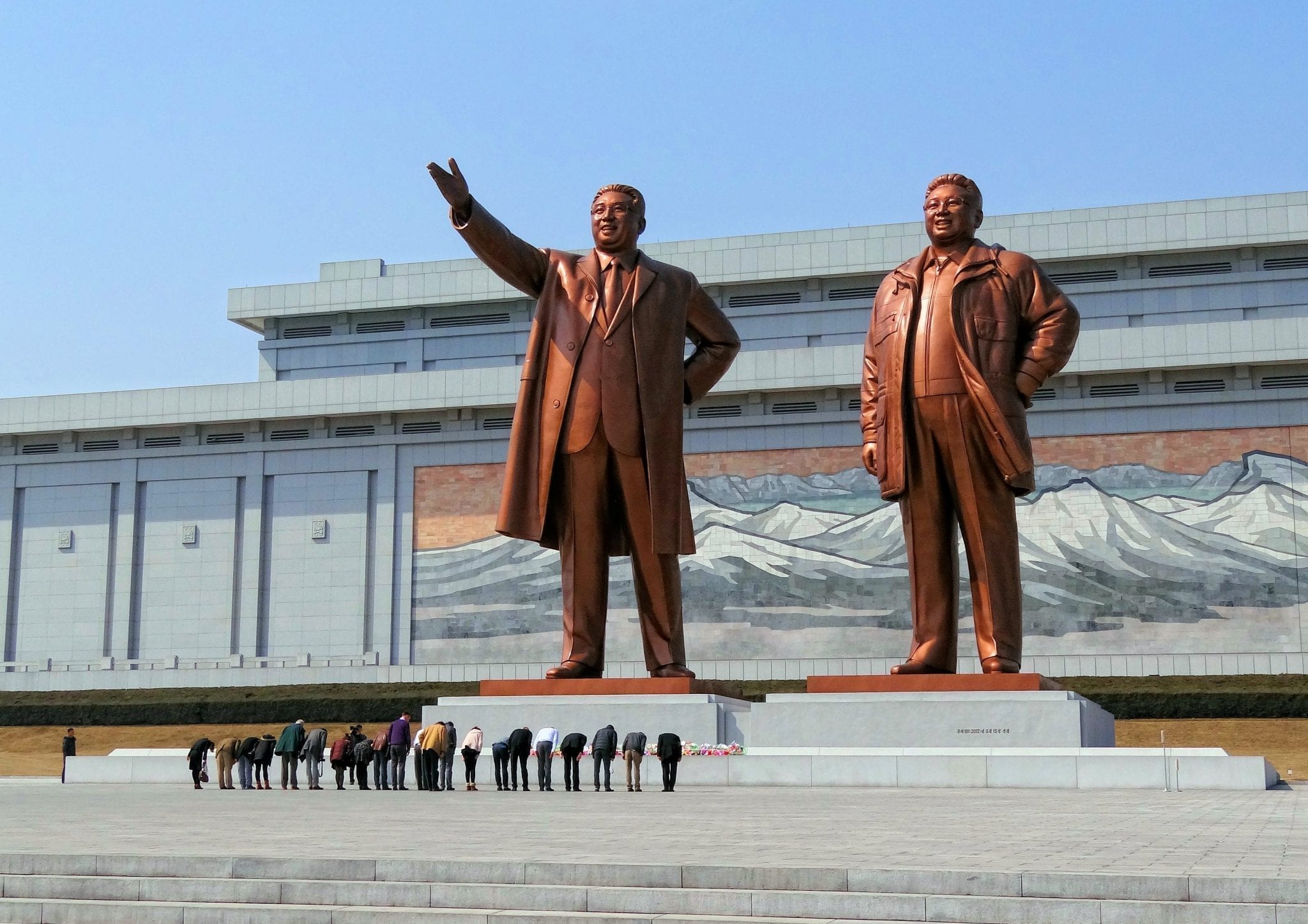There is a ‘three generations of punishment’ policy. If you break the law, not only you, but your family for three generations forward will be punished as well.
According to the 2018 Global Hunger Index, more than 40 percent of its citizens are undernourished. 20 percent of its GDP is spent on military while the population is beyond ravenous. Only about 5000-6000 Western tourists visit this country each year. Citizens are divided into 51 social categories, based on their loyalty to the government. They are relegated to using a state-controlled, domestic intranet, which allows access only to selected censored websites. There is a ‘three generations of punishment’ policy. If you break the law, not only you, but your family for three generations forward will be punished as well. To say this country is atrocious is without a doubt an understatement. According to the 2015 Corruption Perceptions Index, it has the title of the most corrupt nation. Believe it or not, but this is not a passage from Orwell’s dystopian novel, “1984”. Welcome to the Democratic People’s Republic of Korea. Or, if you prefer, simply North Korea.
Division of Korea
After the Japanese surrender at the end of World War II, the Korean Peninsula was divided into two zones along the 38th parallel. The northern part of the peninsula was occupied by the Soviet Union and the southern by the United States. These days, North Korea and South Korea could not be more different. Being an isolated and tightly controlled country, it is an uphill struggle for economists to analyse North Korea’s economy. South Korea, however, has achieved what is referred to as the ‘Miracle on the Han River.’ It prides itself on being one of the world’s most advanced and productive economies. On top of that, South Korean men are, on average, between 3-8 cm taller than their North Korean counterparts. There is also another reason why there is a world of difference between North Korea and its southern neighbour. Continuous violation of human rights.
Human rights record in North Korea
There is a widespread belief that North Korea’s human rights record is far and away the worst all over the world. It has been globally condemned by numerous international organisations, such as the UN and Human Rights Watch, to name but a few. North Korea does not belong to the International Labour Organization, which sets labour standards across the globe. As a result, even children are forced to work on farms and construction sites in appalling conditions. Freedom of the press in North Korea is literally non-existent. Although its constitution provides for freedom of the press, all media is focused entirely on political propaganda. According to the United Nations, North Korean citizens watching a South Korean film may be sent to a labour camp. When it comes to criminal justice, the death penalty is oftentimes administered without judicial due process. Freedom of movement is enormously limited, with vehicles accessible only to the government officials. Furthermore, the Christian Solidarity Worldwide organization has reported that a great number of Christians are subjected to torture due to their faith. The best way to sum up North Korea’s crimes against humanity is to quote Amnesty International, which has placed it in ‘a category of its own.’
Personality cult

One of the ground rules of North Korea’s system is personality cult. Unless you keep the portrait of the former leader, Kim Il-Sung, impeccably clean, you risk being sent to a prison camp. When a fire breaks out, what North Koreans have to do firstly is save the pictures of their country’s political leaders. Anything that may be considered disrespectful towards the Kim family is treated as a form of blasphemy. It is forbidden to chew gum or speak loudly near statues of supreme leaders. Moreover, it is not allowed to have the same name as the current leader of North Korea. Smiling, laughing, dancing or talking loudly is strictly prohibited on the 8th of June since it is the anniversary of Kim Il-Sung’s, ‘eternal President of the Republic’, death.
Everyday life
If you give birth to triplets, the state will take them away and raise them for four years. One of the possible reasons for this strange policy is a prediction which Kim Jong-Il received from an astrologer. Allegedly, an astrologer predicted that the current leader would be killed by a triplet. Moreover, in order to use electricity, you have to obtain permission from the government. Instead of having a rest day, citizens of North Korea are required to work for their country on Sundays (‘collective labour’ day, the so-called volunteering.) If you want to live in the capital city of Pyongyang, you have to be selected by the government. The government determines one’s place of residence, based on their social class. When it comes to one’s appearance, men can choose a haircut from 10 state-sanctioned options, while women – from 18. A great number of clothing types are illegal, inasmuch as they represent ‘cultural ideology invasion.’ Contraband items range from sunhats, skimpy clothes to blue jeans. According to North Korea, blue jeans are a symbol of capitalism and therefore, citizens are not allowed to wear them. International calls are forbidden as well. Failure to comply with this rule is highly likely to result in a prosecution. In many cases, North Koreans have little or no impact on their career path. Instead of choosing a profession on their own, they are assigned a job reflecting the current needs of the country.
Conclusion
Having taken all this into consideration, it is clear that the situation in North Korea is a burning issue. As the United Nations High Commissioner on Human Rights, Zeid Ra’ad Al Hussein stated: ‘The gravity, scale and nature of these violations reveal a state that does not have any parallel in the contemporary world.’ It goes without saying that an unmatched scale of North Korea’s crimes against humanity requires immediate, global attention.
Sources:
https://www.amnesty.org/en/countries/asia-and-the-pacific/north-korea/


Join the conversation!